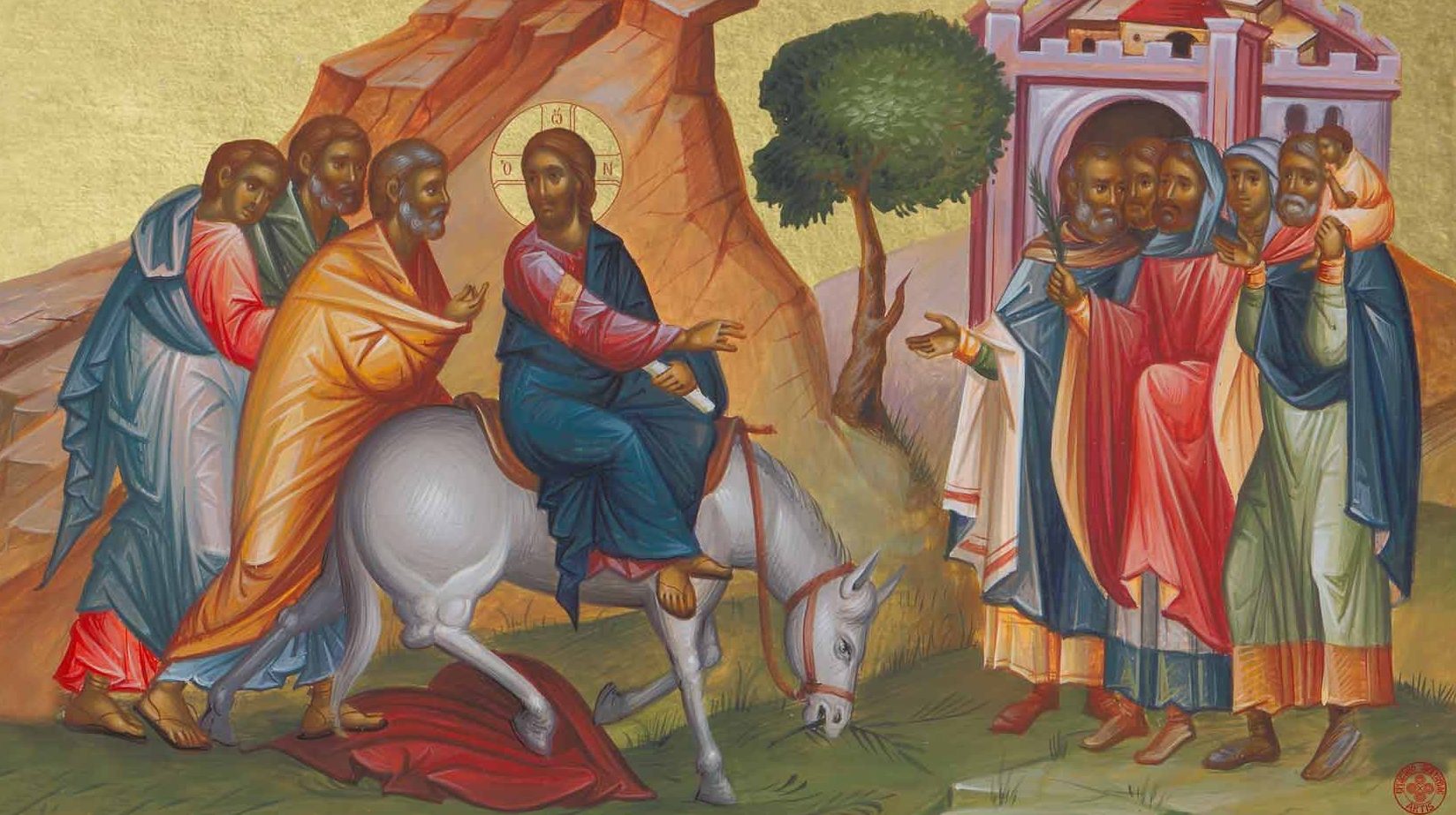Our Share of the Cross
Palm Sunday of the Lord’s Passion

Palm Sunday is also referred to as Passion Sunday, or more completely as “Palm Sunday of the Lord’s Passion.” These names touch on two very different aspects of today’s liturgy, reflected the two gospel readings proclaimed at Mass — a feature unique to Palm Sunday. In churches all over the world people will gather outside the parish doors to begin the celebration in joy and triumph. We will read from Matthew 21:1-11 of Jesus’ triumphal entry into Jerusalem, riding on a humble donkey. People spread their cloaks on the road before him, praising God and singing, “Blessed is the king who comes in the name of the Lord.”
Inside the church, though, is another matter. Turn a page or two in Matthew’s gospel. Now we hear of the Last Supper, Jesus’s arrest and trial, his passion and his death. We participate in the gospel reading by joining the crowds shouting, “Let him be crucified!” Our voices are the ones that choose Barabbas over Jesus. Our voices, that moments ago sang his praises, now condemn him.
Isn’t this exactly like the human heart? Aren’t we all too often like Peter, swearing that we would never deny our Lord, but then before the cock crows discover that we have done it not once or twice, but multiple times?
Why does the Church ask us today to be the voices that call for Christ’s death? I know some people who literally break down into tears as they shout those words at Mass; it breaks their heart. We do this because we are the ones who crucified Christ. We are the ones who are responsible for his suffering and his death — you and me, and every other person who has ever sinned, which is to say everyone. We need to be reminded of this not simply so we can express gratitude (though we should), but so that we can feel true sorrow for our part in Christ’s passion. It should break your heart.
But Jesus doesn’t just suffer because of us; he suffers for us. Christ is not only crucified for us; he asks us to join him on the cross. “If you would be my disciples, you must take up your cross and follow me.” Being a Christian means you must suffer on the cross, as well. Jesus did not come to end suffering on this earth; he came to transform suffering into a means of salvation. He did this by suffering with us. We participate in his work of redemption when we join our suffering to his. This is what it means for us to take up our cross and follow him.
When we are baptized, we are sacramentally joined to Christ’s death and resurrection. From that moment on, each occasion of suffering in our life can draw us closer in communion with our Lord’s passion. This all sounds rather grim, I know. But the Passion is not the end of the story. Palm Sunday is followed by Easter. When we join our suffering to the Lord’s, we join with the one who conquered death. If we die with Christ, we will rise with him (cf. 2 Tim 2:11). This is the great joy of the cross.
Hanging from the cross, beaten and bruised, thirsty, humiliated, and in excruciating pain, our Lord uses one of his last breaths to exclaim, “My God, my god, why have you abandoned me?” Was Jesus, the Second Person of the Trinity, really abandoned by God? No. Our Lord was quoting from Psalm 22, which we hear at today’s Mass. The psalm is prophetic. Divinely inspiration hundreds of years before the Crucifixion, the psalmist speaks of being mocked, having his hands and feet pierced, surrounded by evil doers, and having lots cast for his garments — all things that describe the suffering of Christ. But then the psalmist proclaims, “But you, O Lord, be not far from me; O my help, hasten to aid me. I will proclaim your name to my brethren; in the midst of the assembly I will praise you…”
Jesus was never and could never be separated from God. And God is never far from those who suffer with His Son. The closer you come to the cross, the closer you come to God. Blessed is he who comes in the name of the Lord, the King of Israel, and the Suffering Servant.

